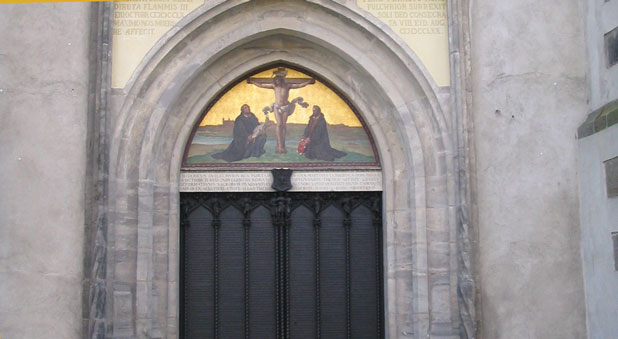Moore College has announced an extensive program of celebrations for the 500th anniversary of the beginning of the Protestant Reformation.
Next year will mark 500 years since Martin Luther set the Reformation in motion by nailing his 95 Theses to the door of the Wittenberg Church in Germany on October 31, 1517.
“The Reformation of the 16th century was a hugely significant epoch and turning point in the history of the church,” says the Rev Dr Ed Loane, who lectures in doctrine and church history at Moore College.
“It is a period that continues to be formative for Christians today – even though many people may not even realise this. This is one reason it is important to celebrate the Reformation... to raise awareness of what happened at that time and why what happened then is still important for us now.”
The celebrations will include two major rallies and a summit on justification by faith.
Former Archbishop Peter Jensen, as well as the Rev Dr Peter Adam and the Rev Simon Manchester, will lead the first “Reformation rally” in March, with Archbishop Glenn Davies and leading British church historian the Rev Dr Gerald Bray featuring at the second rally in August.
Dr Loane says events such as the summit and Moore’s School of Theology conference in September will be an opportunity to look again at what he calls “defining stands” made at that time on important theological issues.
“The Reformation continues to be of significance because the issues and theology that were rediscovered and cherished by the Reformers remain foundational for Christianity,” he says.
“Furthermore, the challenges to this theology remain – albeit under a transformed and modern guise – and thus knowing how those who have gone before us articulated this doctrine and promoted the faith will better equip us to face today’s challenges.”
The Lutheran Church plans to mark the anniversary with a year of celebrations including an official ceremony on October 31, 2017, in Wittenberg.
Ironically, next month Pope Francis will take part in an ecumenical service with the World Federation of Lutheran Churches. In June, he praised Luther’s “intentions” and told reporters, “Today Lutherans and Catholics, Protestants – all of us – agree on the doctrine of justification”.
However, the Rev Mark Gilbert, who leads a Sydney ministry called Certainty4Eternity that seeks to share the gospel with Roman Catholics, says what Pope Francis means by “ justification” is quite different to what it meant to Martin Luther.
“Despite these statements of agreement between Catholics and a small number of Protestants – which really just obscure these important differences – sadly, the issues raised at the Reformation are far from resolved,” Mr Gilbert says.
“Having grown up in the Catholic Church, when I started reading the Bible with my Protestant friends at university I realised that God saves people who don’t deserve it, without their help. That means on a good day or on a bad day I still know with certainty where I stand with God because being right with God depends completely on something objective – outside myself – on the sacrificial death of Jesus alone.”
Mr Gilbert is urging Anglicans to use the Reformation as a conversation starter.
“Why not ask your Catholic friend if they are certain they are going to heaven and, if they’re not, why not share with them the solution that Martin Luther discovered?” he says.
Feature photo: The Wittenburg church door (Wikipedia)























